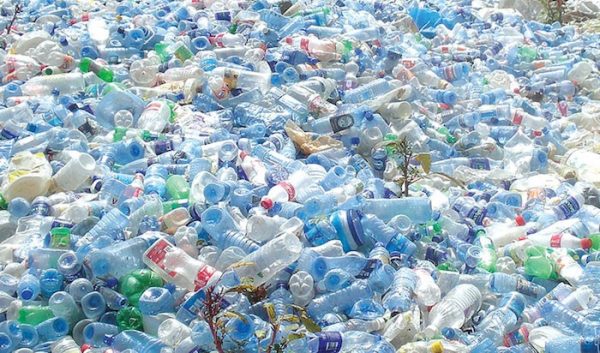Environmental experts have raised concerns on the dangers of Persistent Organic Pollutants (POPs) in plastics in the country.
They said this at a programme on National Inception and Scoping Workshop on the Circular and POPs free plastics in Africa Project on Friday in Lagos.
The workshop was organised by the National Environmental Standards and Regulations Enforcement Agency (NESREA) with the support of the United Nations Environment Programme (UNEP) and others.
Dr Joshua Babayemi, a Consultant to Basel Convention Coordinating Centre (BCCC) in Africa on POPs free Plastic in Africa Project, said that plastics remain dangerous to humans because of the presence of the POPs in their properties.
Babayemi explained that POPs were additives added in plastic production to retard flame.
According to him, POPs have cancer causing properties and the entire globe is looking for alternatives in order to eliminate them completely from the production stage.
Babayemi said that the BCCC was established to create awareness on POPs as a component of plastics.
He called for the proper management and disposal of wastes, especially plastic wastes that predisposes man and the environment to the dangers of POPs.
Contributing, Mrs Miranda Amachree, Consultant at Soribto Nigeria Ltd., an Environmental Consultant for the project, said most of the plastics used in different sectors contain POPs.
Amachree noted that manufacturers introduced POPs in plastics production as flame retardants.
“They are brominated flame retardants, making those plastic used in those sectors not to catch fire.
“It is like we are trying to solve a problem and in solving that problem you create another problem,” she said.
Amachree said these chemicals had become persistent in the environment due to their indiscriminate disposal by humans after usage.
“Being persistent in the environment is not even the major problem but they are problems to human health and the environment.
“Some of them are cancer causing agent; and that’s why the international community is targeting on how to take them off the manufacturing stage,” she said.
Amachree said that improper management of our wastes, especially through burning releases unintentional POPs to the environment.
This, according to her, has hazardous effects both on human beings and the environment.
“The international community is looking at introducing alternatives that are not bad right from the manufacturing stage,” she said.
She added that the target of the project was to create POPs free plastic in Africa.
Earlier, Prof. Percy Onianwa, Executive Director, BCCC for the African Region, University of Ibadan, said industrial POPs are added into the final plastic product mainly at the polymerisation or plastic production phase already incorporated as additives before they are imported.
Onianwa said that polymers containing these industrial POPs were primarily used in electronics, vehicles, building and construction materials and recycled products.
According to him, the objective of the project is to reduce the import, production and use of POPs in plastic-containing products; and the generation of unintentionally generated POPs (uPOPs) in selected African countries.
Onianwa disclosed that the project was funded by the Global Environment Facility with the UNEP, as the implementing agency.
He said the scope of the project covers such countries as Kenya, Nigeria, South Africa Uganda and Zimbabwe.
Okinawa addes that the project’s coordinating institution was NESREA.
“Project components include the development for strategies targeting plastics containing POPs, circular economy practices to reduce pollution from plastics containing POPs.
“Others are; environmental sound management of plastics containing waste, knowledge management, capacity building, and communication,” he said.


